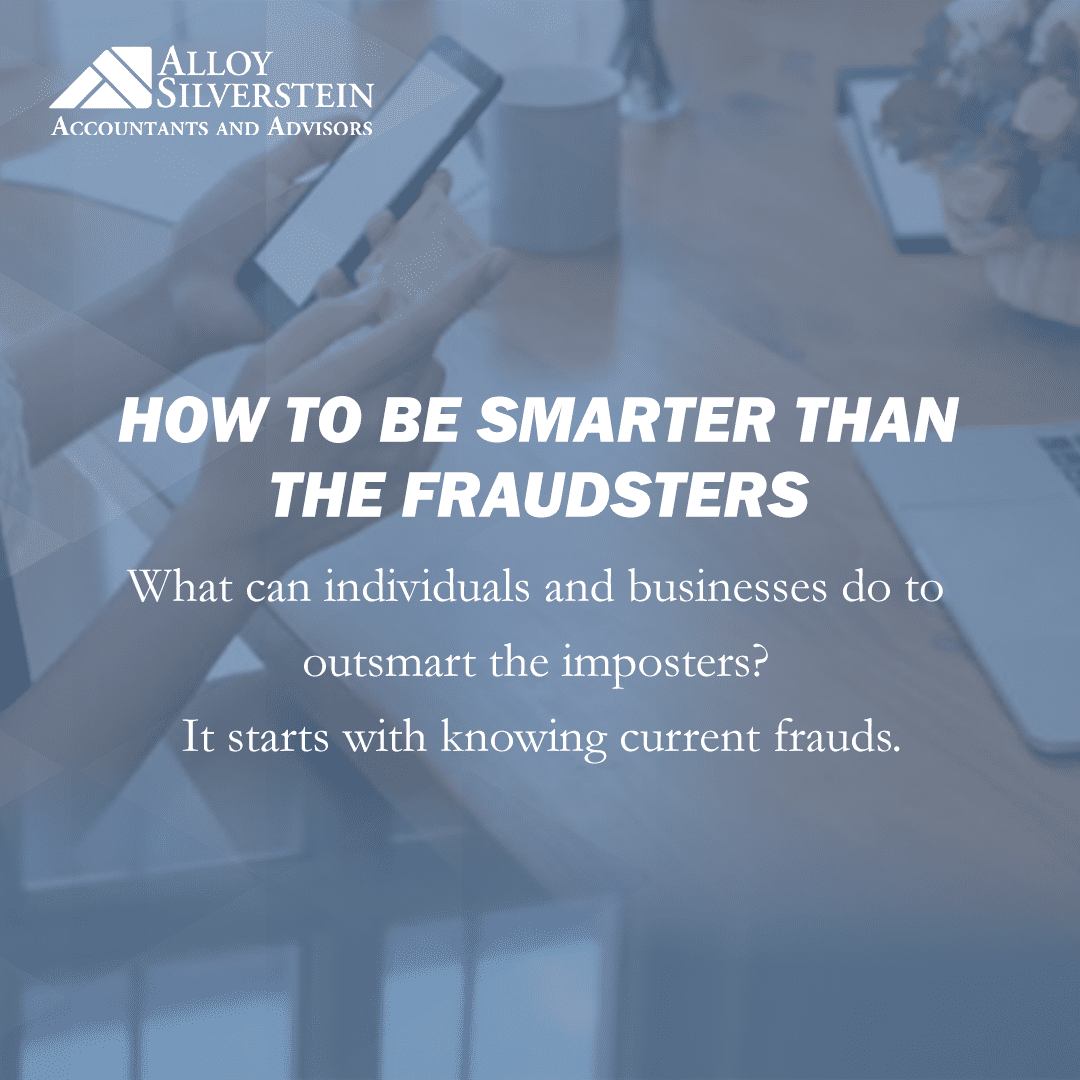
There is financial fraud here, cybercrime there and threats just about everywhere. What can individuals and businesses do to outsmart the imposters? It starts with knowing current frauds.
Making the rounds now is a fake IRS notice about a third Economic Impact Payment. Remember that the IRS doesn’t initiate contact by phone, email, text or social media or ask for personal or financial information. Another recent scam involves unemployment benefits. If you get a Form 1099-G showing compensation you didn’t receive, contact your state agency. If the matter isn’t resolved by tax time, complete your return claiming only the unemployment income you received.
Phony websites featuring non-existent products and bogus coupon offers abound. Before you buy, check URLs thoroughly and make sure that the company has a working customer service number. Pay with a credit card—most offer full protection on fraudulent purchases. Be extra vigilant on Facebook Marketplace. Criminals are out in force here. Look for suspiciously low prices and sellers who won’t show you the item in person.
At this time of year, beware of fake nonprofits. Before you donate, use the IRS Tax Exempt Organization search to verify the charity.
Now that it’s almost W2 season, put your employees on guard to safeguard social security numbers and be alert for falsified direct deposit requests to divert funds. Urge them to look at every single character in an email address, scrutinize messages, and verify anything suspicious with a phone call. Employees also need to know to communicate concerns immediately because some states have time limits to inform customers if you do have a data breach.
Generally, beware of high-pressure situations, offers that seem too good to be true and demands for wire transfers or gift card payments. A little healthy skepticism can’t hurt. If you do fall victim to a fraud, consider freezing your credit, changing your passwords immediately and adding two-factor authentication to your accounts.
Empowering business owners and individuals in South Jersey and Philadelphia to feel confident through proactive accounting and advisory solutions.